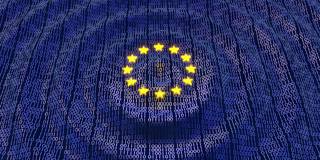Whereas the battle over 4G mobile networks was essentially commercial, the ongoing 5G debate is about geopolitics, technological leadership, and national security. And Europe, in particular, must develop a much stronger common approach in order to make itself less vulnerable to security risks.
BRUSSELS – How times change. Not so long ago, the next big thing in telecommunications was 4G mobile networks, which promised massive data transfers and cheap voice calls. Now comes 5G, which will potentially spur all sorts of new digital innovations, thanks to its greater speed (200 times faster than 4G), faster data transfers from wireless broadband networks, and, most important, the ability to connect cyber-physical objects in the context of the Internet of things. Moreover, 5G is expected to enable the much more rapid reaction times required for driverless cars, advanced factory automation, smart cities, e-health, and many other applications.
But there is another key difference. Whereas the battle over 4G was essentially commercial, focusing on job creation and profits, the ongoing 5G debate is about geopolitics, technological leadership, and national security. Here, Europe must develop a much stronger common approach to the new 5G technology to make itself less vulnerable to security risks.
Most of the current 5G controversy centers on whether US and European mobile operators should buy equipment from the Chinese telecoms giant Huawei. The US government previously banned the firm from its telecoms market because of espionage concerns (although it has yet to produce evidence of this publicly), and strongly urged its European allies to do the same.

BRUSSELS – How times change. Not so long ago, the next big thing in telecommunications was 4G mobile networks, which promised massive data transfers and cheap voice calls. Now comes 5G, which will potentially spur all sorts of new digital innovations, thanks to its greater speed (200 times faster than 4G), faster data transfers from wireless broadband networks, and, most important, the ability to connect cyber-physical objects in the context of the Internet of things. Moreover, 5G is expected to enable the much more rapid reaction times required for driverless cars, advanced factory automation, smart cities, e-health, and many other applications.
But there is another key difference. Whereas the battle over 4G was essentially commercial, focusing on job creation and profits, the ongoing 5G debate is about geopolitics, technological leadership, and national security. Here, Europe must develop a much stronger common approach to the new 5G technology to make itself less vulnerable to security risks.
Most of the current 5G controversy centers on whether US and European mobile operators should buy equipment from the Chinese telecoms giant Huawei. The US government previously banned the firm from its telecoms market because of espionage concerns (although it has yet to produce evidence of this publicly), and strongly urged its European allies to do the same.